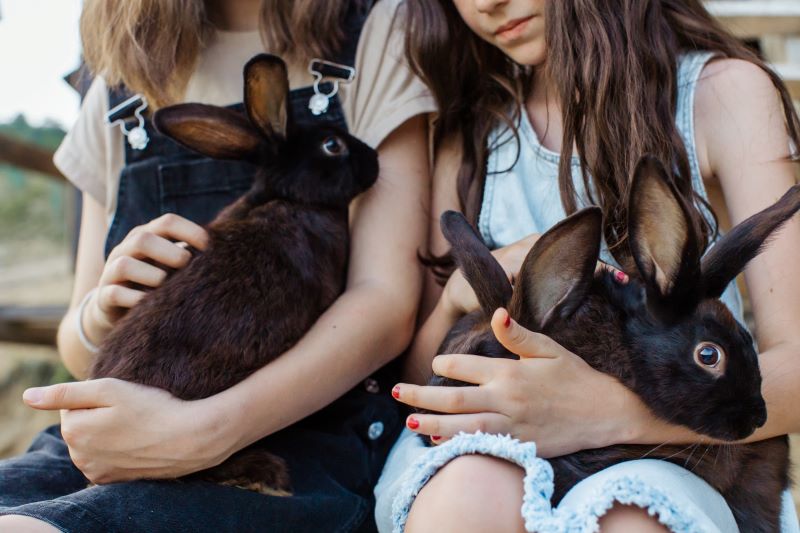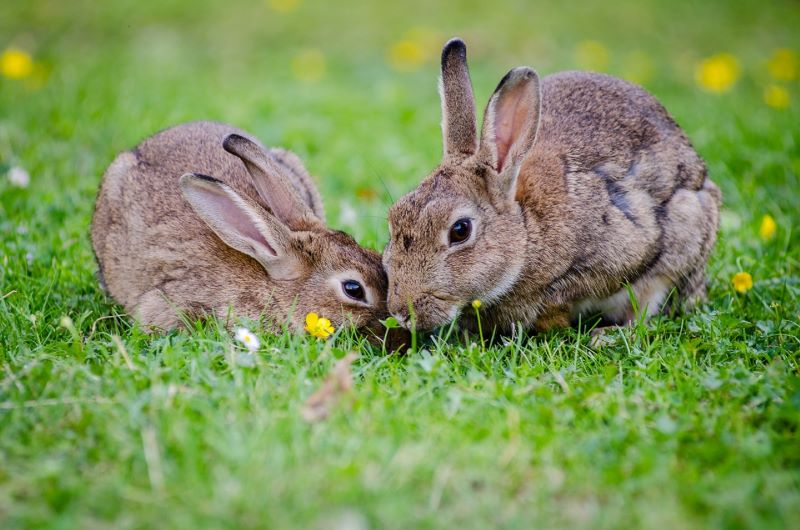Although cats and dogs are still the most popular pets in the U.S., recent surveys suggest that up to 50% of all household pets are now considered “exotic.” Among some of the most popular exotic pet choices are rabbits, guinea pigs, lizards, and birds. And while these pets can be just as loving and lovable as your regular domestic animals, the support and care they need can be vastly different.

To ensure that your exotic pet will be living its best life for many years with you, here are some important tips:
1. Prepare the right enclosure
Exotic pets sometimes need more carefully crafted enclosures: cages for birds and small mammals, tanks for fish, amphibians, and reptiles, etc. In many cases, the right enclosures also need to be prepped in advance. Not doing so can be harmful –– even deadly –– for exotic pets. For instance, PetHelpful reveals that while most gecko owners will set up random lamps, this can actually burn the animals’ bellies; it’s better to have an under-tank heat mat that properly warms an area.
To figure out the correct setup for your pet, do research early on. This way, when you get the pet, it’s already got a cozy, healthy space.
2. Learn about their habits
Exotic pets don’t typically show signs of illness or pain like other animals. Hence, it’s important to look out for subtle changes in their habits (like food consumption, thirst, and energy). The sooner you take note of changes and act upon them, the sooner necessary treatment and recovery can begin.
Since some exotic pets like rabbits, birds, and hamsters are among the “5 Best Small Pets For Your Child” we’ve discussed here before, make sure your kids know how to monitor them, too. This will teach your kids empathy and discipline, and further ensure the pets’ wellbeing. (Do keep an eye on things yourself as well though!)
3. Support their proper diets
According to the Oregon Veterinary Medical Association, obesity is becoming a common problem among all pets. Over time, this can cause serious health problems, including organ failure. Thankfully, it’s easy to avoid so long as you know how to feed your pet.
Grazing herbivores thrive on high-fiber and low-calorie diets. Meanwhile, omnivores do best with a balanced, low-fat diet, even if they’ll seemingly eat anything. Lastly, carnivores or insectivores are better off being fed low-fat, calcium-enriched meals. This way, they don’t wind up with too much cholesterol.
These are general guidelines, but it’s still important to assess the specific dietary needs of specific animals and species as well. If in doubt, you can always ask your vet about how to tailor your pet’s diet.

4. Consider exotic pet insurance
We’ve talked about pet insurance before, but exotic pet insurance is another matter entirely. As explained by Sound Dollar, exotic pets are more expensive to treat because they require specialized care. Over time, this can make treatment especially costly if your pet requires diagnostics, medications, and/or surgery. With exotic pet insurance however, you (and your pet!) can enjoy coverage for injuries, illnesses, and annual check-ups. This will even include lab work, prescriptions, and hospitalization.
One important note to add is that since exotic pet insurance only covers health concerns that occur after the policy is in effect, it’s best to sign up as early as possible. This may make the premium you’ll have to pay may lower as well. And once a policy is in place, you can enjoy peace of mind knowing your pet will have the resources to get better should they fall ill.
5. Find the right veterinarian
Finally, even with insurance in place, you’ll want to find yourself a trustworthy exotic vet. This means finding a vet who has the correct training in exotic animals and has the disposition to calm your pet.
To find the right vet for your pet, The Spruce Pets suggests looking at candidates’ credentials first. Vets you consider should have advanced training and memberships in organizations like the Association of Exotic Mammal Veterinarians (AEMV). Aside from the vet themselves, you’ll also want to choose a clinic where the staff is similarly well versed or passionate about exotic animals. Once you’ve found a vet and clinic that tick all these boxes, you can rest assured your exotic pet will receive the appropriate care when needed.
Although exotic pets may require a little extra TLC, caring for them is pretty straightforward once you get the hang of it. When you’ve pinned down the right lifestyle and approach for your pet’s unique needs, you can look forward to years of happy companionship together.
